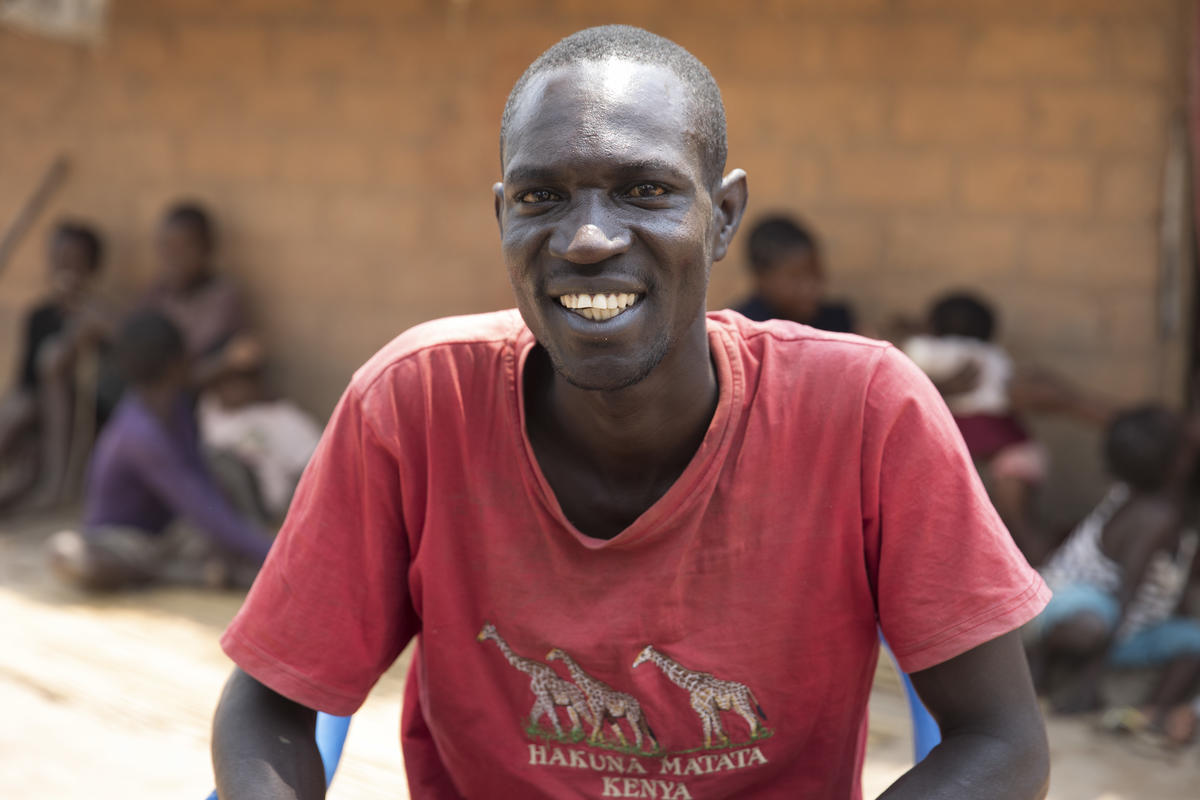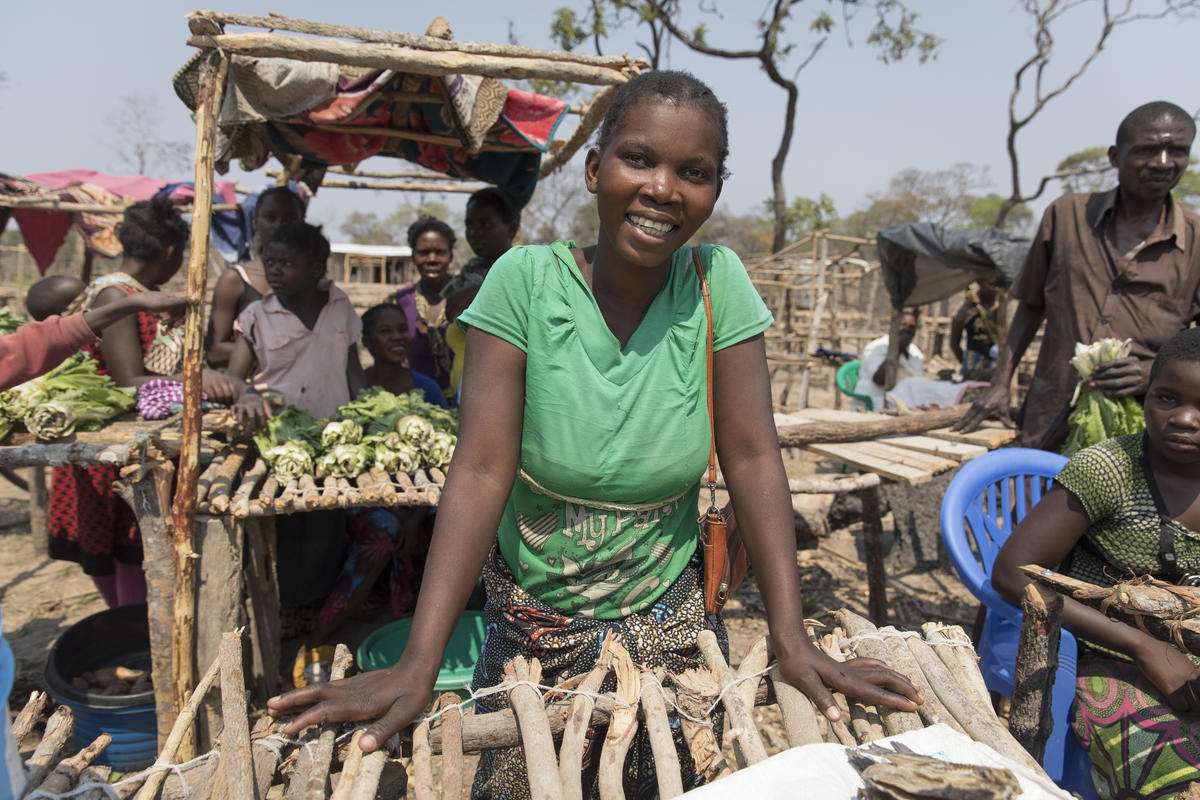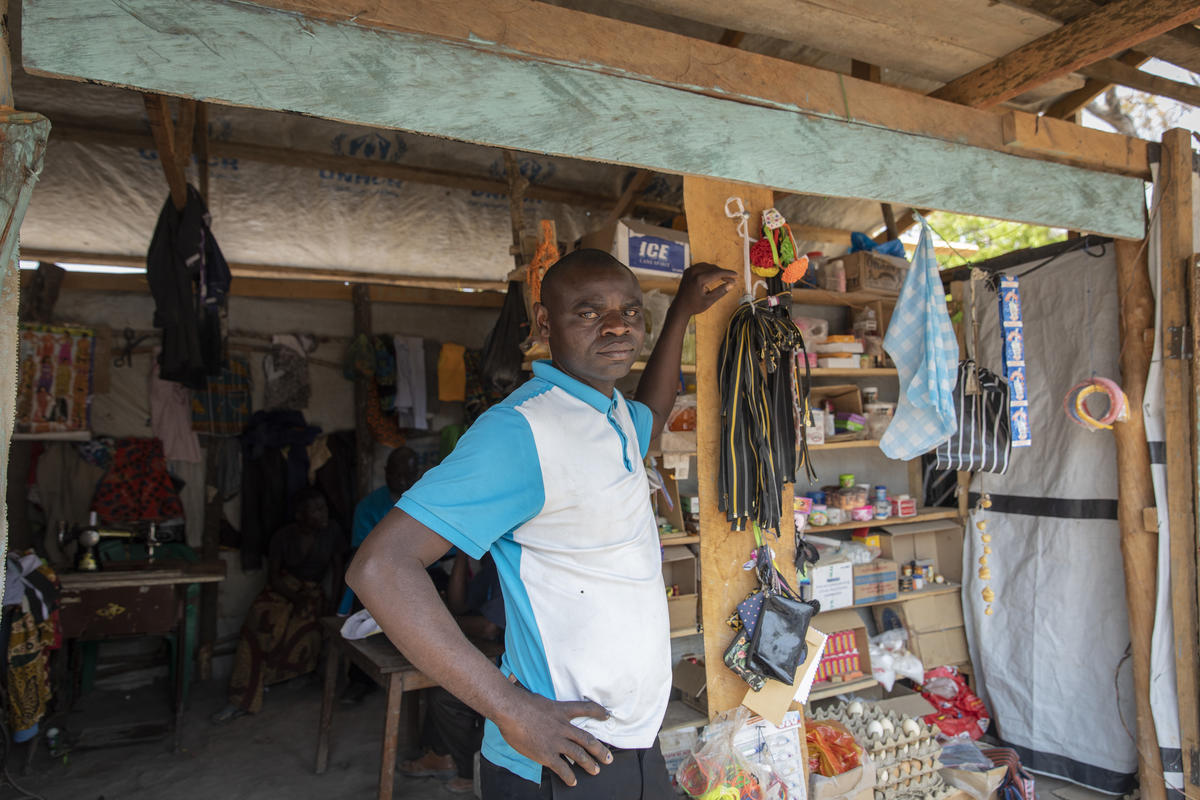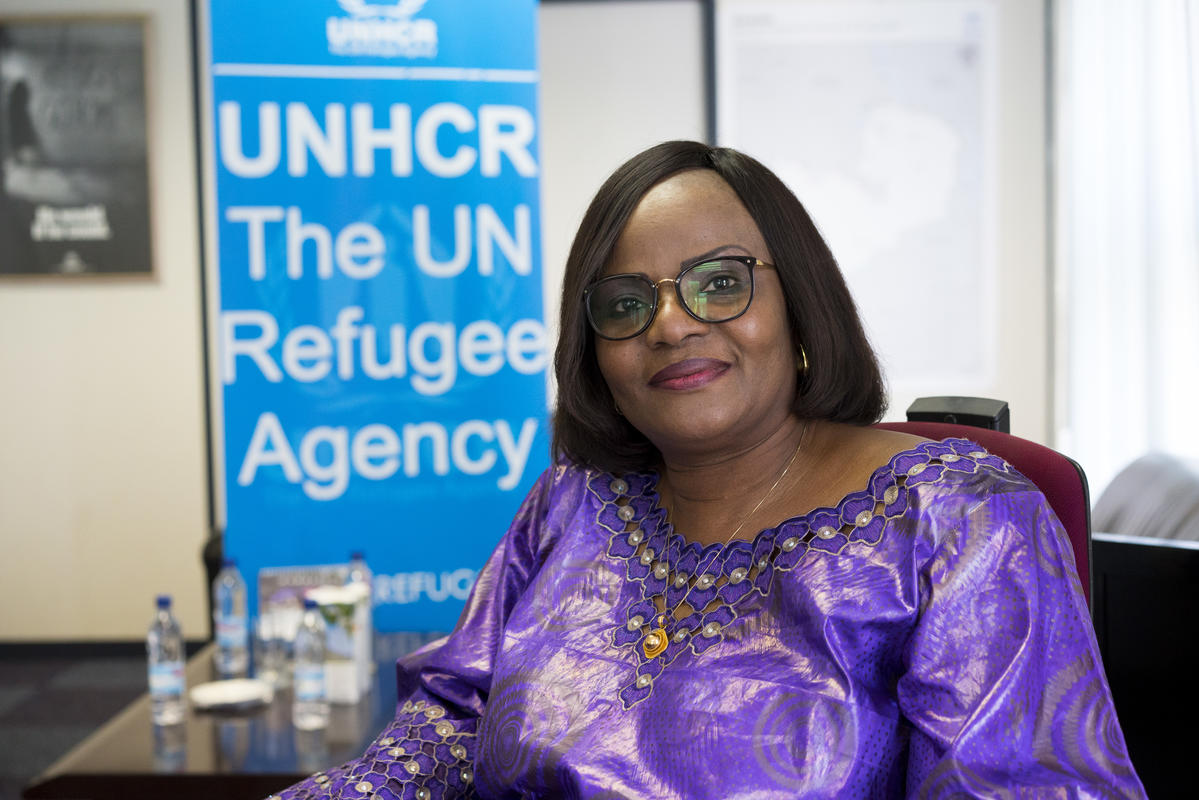New Zambia settlement gives refugees and hosts a chance to prosper

Mela Mwansa stoops to water her garden plants, soaking their roots in the red, sandy soil. Around her, green shoots reach up towards the dappled light under the trees. These plants mean a lot to Mela, a life-long farmer.
This harvest will be the first since she and her family fled an armed attack on her village in southern Democratic Republic of the Congo (DRC) and sought safety across the border in Zambia.
“I feel good when I see the crops growing well in my garden, the green here gives me hope,” says Mela, 35, who arrived in Zambia with her husband and six children in October 2017, just a handful of the thousands of refugees fleeing escalating violence in the DRC since August 2017.
To house them, the Zambian government, UNHCR, the UN Refugee Agency, and partners established Mantapala Settlement, an 8,000-hectare site in Luapula Province, near the border with DRC. Built around existing farmland, the site is now home to over 10,800 Congolese refugees and around 5,000 local Zambians, the majority being farmers, traders or artisans.
"I feel good when I see the crops growing well in my garden, the green here gives me hope."
“Refugees often arrive with nothing but with their skills,” says UNHCR Livelihood Officer George Omondi. “It’s important they are given an opportunity to realise their potential.”
Mantapala Settlement is designed to do just that. Farming households like Mela’s are allocated half a hectare of land which also enables them access to a market place to sell their products. For Mela, who lost everything when she fled her home, the land not only represents a lifeline, but it is a chance to support herself and her family long term.
“I’ll be so happy once I get the bigger plot because I’ll be able to grow crops that I can sell,” says Mela, who hopes to generate income by selling cassava and maize in the settlement market place. “With the money, I can buy clothes for my children and add to the food we receive from WFP.”
The settlement forms part of a new broader approach to refugee movements across the world. In line with the Comprehensive Refugee Response Framework (CRRF), Zambia is committed to including refugees in its National Development Plan (NDP) and ensuring refugees and their hosts benefit from investment in the region through development support.
Refugees like Mela are not the only ones to benefit from Zambia’s new approach, which hopes to promote coexistence with their host communities. Under the livelihood scheme, land and access to the market are also available to Zambians.
For the local farmer Kelvin Mwansa, this has been life-changing. When Mantapala Settlement was set up around him, Kelvin was allocated extra land as well as seedlings, tools and guidance from UNHCR’s partner Caritas Czech Republic. Best of all, the new settlement market has saved him a 70 km round trip to sell his crops.
“I’m happy that the refugees are here,” says Kelvin, 29, who settled on the land with his family two years before the refugees arrived. “The locals and the Congolese are getting on well because the opportunities they are receiving are equal. There’s a market here, and people, so if I produce anything to sell it’s much easier to go and sell it.”
A short walk away from Kelvin’s farm, traders set up stalls in the settlement market place. As well as a place for farmers to sell their produce, the market also provides opportunities for traders and artisans – refugees and locals alike.
At one stall, Zambian trader Mirika Bwalya is setting out small piles of kapenta – tiny, salty sardines traditionally used as seasoning. The arrival of the refugees has opened up a new market for her goods. She now travels here twice a week from her nearby village of Kampampi, picking up fish to sell from traders along the way.
“I’m struggling to raise money to pay for my education,” says Mirika, 28. “Sometimes it’s slow here, but, bit by bit, I always sell the lot. It’s good that the market is here – I can stay with relatives here while I’m selling.”
Nearby, in a low, tin-roofed shack, Frederick Puta is overseeing production in his tailoring workshop. A Congolese refugee, Frederick used the last of his money to buy a sewing machine when he arrived in Mantapala in January 2018 together with his wife and five children. Eight months later, business is booming. He now has five sewing machines and four employees – all fellow refugees from DRC.
“I’m happy that the refugees are here."
“I’m lucky that I’m in a place where refugees are able to work and set up their own businesses,” says Frederick, 44, who also had a tailoring shop at home in Congo. “Through my business I has access to income which I can use to buy other things such as food, medicine and school equipment for my children.”
As his business continues to grow, Frederick hopes to employ local Zambians, whom he says account for 50 per cent of his customer base. Key to his shop’s popularity is a type of double-breasted Congolese jacket that few Zambians know how to make.
“Refugees bring many opportunities including their skills and strengths that can be shared with host communities,” explains UNHCR representative to Zambia, Pierrine Aylara. “Often in Zambia they are entrepreneurs and mingle very well with the host community.”
Given the opportunity to engage, Mrs. Aylara adds, refugees are not only able to become self-sufficient, but also boost the local economy, both by buying local produce and bringing new skills to the often underdeveloped areas they settle in.
“Refugees bring many opportunities."
Last year, the Zambian government passed a new legislation aimed at furthering refugee inclusion, granting refugees new property rights, access to financial and judicial services, and lowering barriers to permanent residency and naturalization.
The law also lays down a framework for the settlement approach applied in Mantapala, granting refugees access to land and services and ensuring refugee-hosting areas are included in National Development Plans.
“[Mantapala Settlement] is a good example of how refugees have a positive economic impact on the local community,” agrees Abdon Mawere, Zambian Commissioner for Refugees. “Local people have embraced that, refugees are an opportunity, they aren’t necessarily a burden.”
Zambia’s newest refugee arrivals are keen to live up to that expectation. Just days after fleeing across the border to safety, Congolese refugee Maxim Kaputa speaks of his relief and hope for his new life in Mantapala Settlement.
“Here in Zambia we are very happy,” says Maxim, 64, who fled an attack on his village in Pweto at the end of August and who came searching for his two adult children already living in the settlement. “We can sleep at night now we’re able to feel freedom.”
Asked what his hopes are for the future, Maxim breaks into a wide grin. “All of us want to start businesses,” he says, waving his hand at the new arrivals in Mantapala’s transit zone. “We’re all looking forward to that. We’ve found peace here, now we want to use it.”












